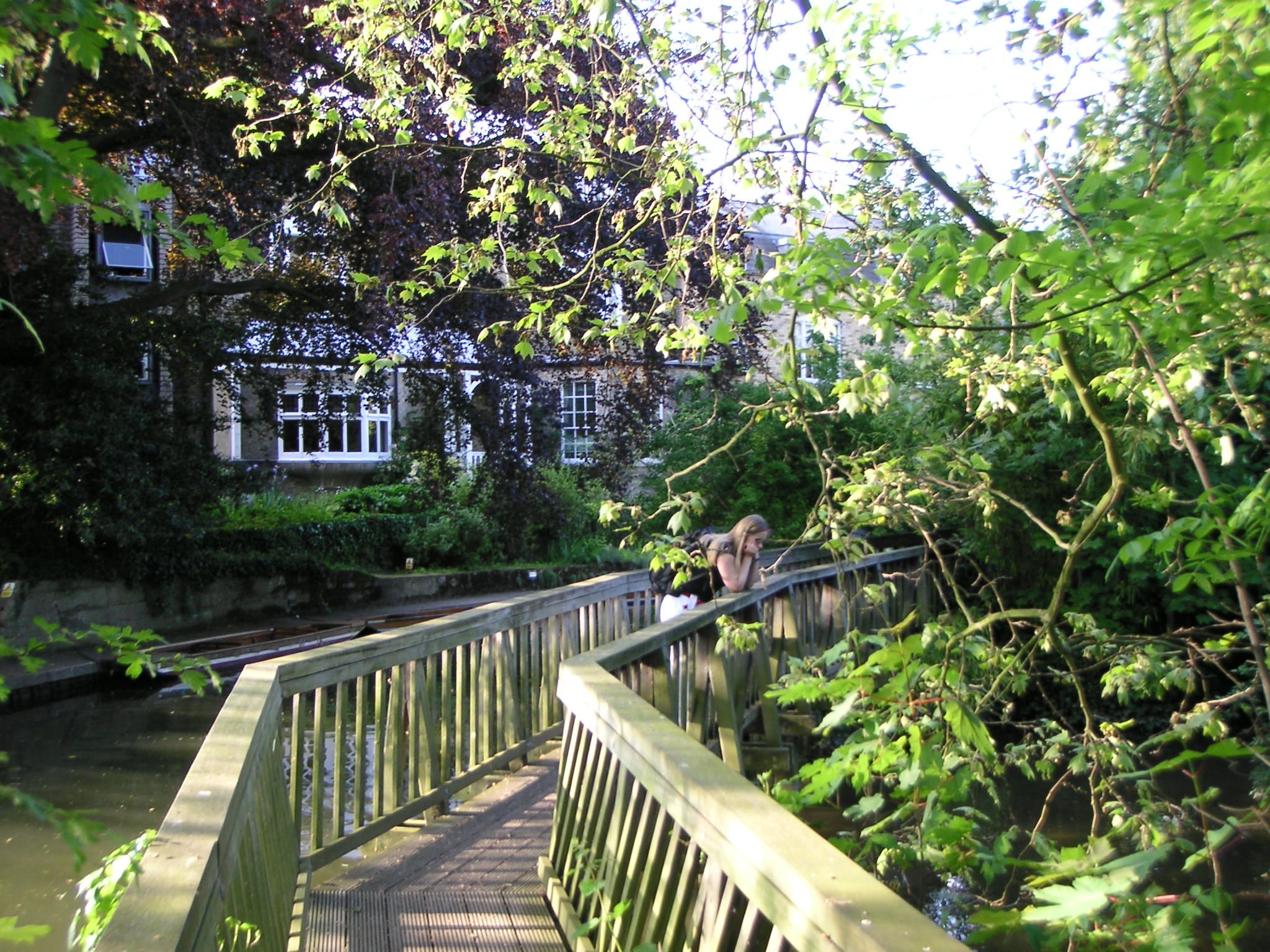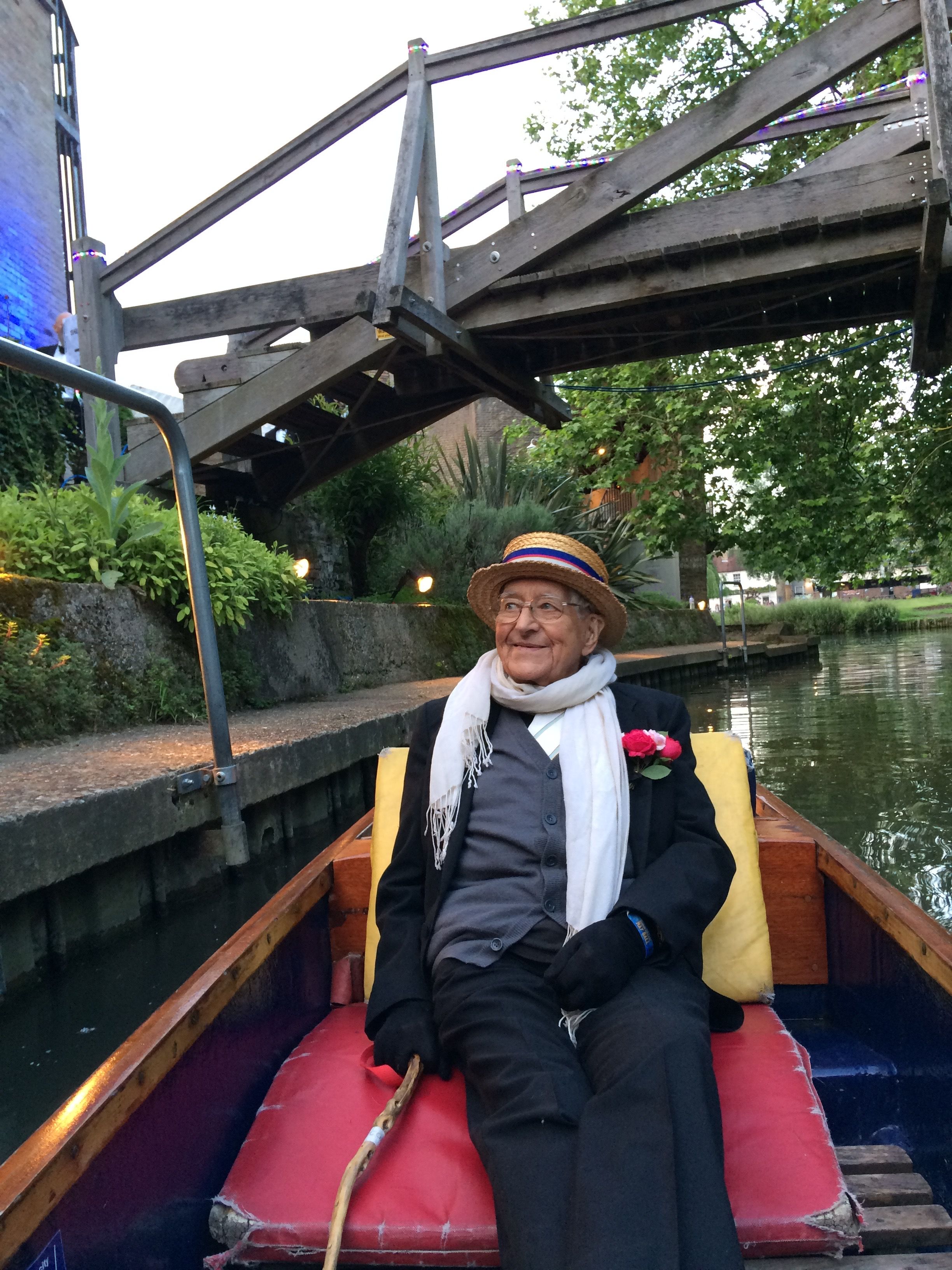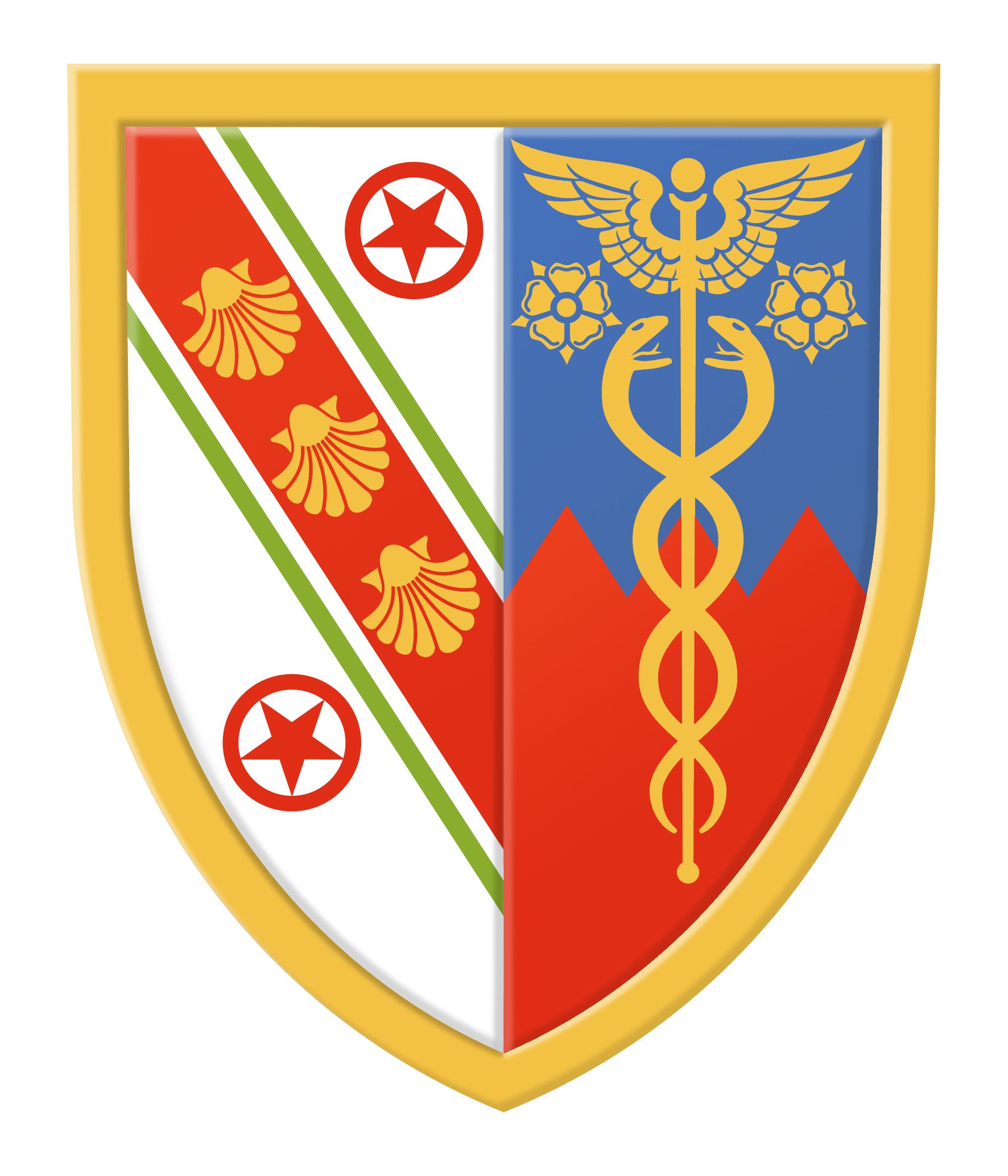Those We Have Sadly Lost
Obituaries of College Fellows, Alumni and Friends

Professor D.H. (‘Hugh’) Mellor ScD (1938–2020)
By: Derek Matravers Darwin alumnus and Senior Member
D.H. Mellor (known to his friends as ‘Hugh’) died in Addenbrooke’s Hospital on 22nd June from nonHodgkinson’s lymphoma – an illness which he had borne for some years with stoic good humour.
Hugh enjoyed (in every sense) a distinguished academic career as a philosopher. It used to surprise people that his first degree was in Chemical Engineering. (The enduring effect of this on his academic standing was that, when he graduated with a prestigious Higher Doctorate from the University in 1990, he was entitled to an ‘Sc.D.’ rather than the more appropriate ‘Litt.D’ – he took the former simply out of devilment).
Following his Chemical Engineering degree, he studied for an M.Sc. in Minnesota in the course of which he discovered: Philosophy.
He returned to Cambridge to do a PhD in the Philosophy of Science which was awarded in 1968. He joined the Philosophy Faculty as a lecturer, worked his way up the ranks, and became Professor in 1986. He retired in 1999. After that, he served as a University Pro-Vice Chancellor from 2000 to 2001, when he was responsible for setting up The Centre for Research in the Arts, Social Sciences and Humanities (CRASSH) – now one of the jewels in Cambridge’s crown. He held many honours, becoming a Fellow of the British Academy in 1983 – a position from which he resigned in 2008 because he felt that he was not able to keep completely on top of advances in the discipline (how many FBAs do that?). As we shall see, resigning was something of a trope with Hugh.
Hugh saw himself, with justice, as following in a succession of Cambridge philosophers, starting with Frank Ramsey (1903-1930) and followed by the likes of Richard Braithwaite (1900-1990), in doing ‘serious metaphysics’. He made seminal contributions to a range of topics. The most sustained of these were in the philosophy of probability and on the philosophy of time, where his work remains essential reading. In addition, he made important contributions to thinking about the mind, causation, natural kinds, properties, and a host of other issues. He was a brilliant teacher whose supervising style matched his general approach; to take the work very seriously, but life a great deal less so. His graduate students, many of whom now hold positions in universities around the world, had drilled into them his own exceptionally high standards, intolerance of academic posturing, and impatience with cant. Supervisions were intellectually challenging and seldom contemplative experiences. Even thirty years later, I would still feel a wave of cold fear when ringing the bell on visits to his house in Orchard Street, fearing that Hugh might have come across something I had written which he felt was not quite up to snuff.
Hugh had been a Fellow of Pembroke but resigned in a row over the appointment of a new Master, and joined Darwin in 1971. The College was much the richer for his presence. He brought his great enthusiasm for the theatre (he was an accomplished amateur actor) and established a keen group of thespians. He organised for the lights to be installed in the Dining Hall which allowed it to be transformed into a venue for a range of plays and performances. He was fiercely loyal to the College and very generous with his time. He was particularly keen to help anyone, no matter how junior, who had a serious interest in philosophy. An enquiring email might result in an invitation to Orchard Street, to lunch in the Free Press (his local), or to Blacks (his rather raffish Soho club) for a long conversation followed – perhaps – by a visit to the theatre. He was also generous with his money. He provided the means for bursaries to enable many students, who would not otherwise have been able, to come to Darwin and study Philosophy.
Hugh’s time in the College was not without controversy. In 1992 he, with two colleagues, stood in the Senate House to declare ‘non placet’ (an expression of dissent) to force a vote on whether to give the French philosopher, Jacques Derrida, an honorary degree. It is difficult to imagine any two philosophers whose styles were more antithetical. The proposal to award the degree was eventually voted through but not before Hugh had made his point. The controversy, which I don’t think Hugh much enjoyed, made for some uncomfortable conversations in the formal halls at which he was a regular attendee.
A year earlier, he had opposed Darwin accepting money for the Perrott-Warrwick Fellowship in Parapsychology. When it was put to him, in a television interview, that the College should accept the money as ‘work on parapsychology was not illegal’, he replied, rather characteristically, that ‘neither was prostitution, yet he would not expect the College to open a brothel’. Hugh was again on the losing side, and the Fellowship was held with distinction by Nicholas Humphrey. Hugh resigned for a third time in 2005, on this occasion from Darwin, in a row about Fellowships. Having said that, it did not seem much to dent his enthusiasm for ‘the old Coll’, as he used to refer to what was his Cambridge home. This should not have been a surprise; Darwin is academic, serious, friendly, welcoming and without snobbery or pretention – all things that Hugh embodied and appreciated. He greatly enjoyed the College’s growing success – although I am sure a greater attention to provision for the theatre in the new buildings would have been welcome. The bulk of his estate, including the proceeds of the sale of the Orchard Street house, have been left to boost the bursaries for Philosophy in Darwin. Hugh brought both his distinction and his distinctive personality to Darwin. Both have rubbed off on the College, to its lasting benefit.
The College is actively raising donations for the Philosophy Fund and also for other bursaries. For more information or to donate to any of our bursaries please contact the Development Office on development@darwin.cam.ac.uk.
Mr Richard King CBE (1929–2020)
By: Roger Whitehead, Emeritus Fellow
Richard King, a highly respected Fellow of the College, died on the 28th of June 2020. Although not an academic, he had been elected to a Fellowship to fulfil a special need. It was recognised among the Graduate Membership that there were those who were wondering whether their future should be to remain in academia or to venture out into the wider world of industry. Although many of the existing Fellows at the time had some links with the commercial world this was mainly in an advisory capacity. What was needed was someone of eminence with a direct knowledge of the intellectual and career challenges that a change in direction could bring. Richard’s background and achievements made him the obvious choice as a source of this help and guidance.
Richard was a Cambridge boy having been brought up in the Garden House Hotel which was owned by one of his uncles. His main schooling was at the Perse. He left school at 18 but not before he became one of only four nationally, who had won an English-Speaking Union Travelling Scholarship to the United States. This visit had included an audience, whilst still in school uniform, 25 with President Truman in the Oval Office. He even listened to the President playing the piano. The meeting was to have a lasting impression on Richard who retained a deep respect for Truman and his style of leadership, as well as for the United States in general.
These were the days of National Service and he was drafted into the army. For some reason he refused the chance of a commission but quickly rose in rank to Staff Sergeant, interestingly a rank he had previously held in the school OTC. He would joke that this had developed his ability to shout! Although he had already been offered a provisional place at Gonville and Caius to study Economics and Geography this was dependant on him passing a Latin exam which he unaccountably failed. Rather than being devastated by this he recognised it had the potential of leading him to exciting new opportunities. He joined the Cambridge based electronics firm Pye as a management trainee and ended up as its Sales and Marketing Director. The Pye group then merged with the Dutch based company Philips and after a period in Australia he was sent to study at the Harvard Business School on an Advanced Management Programme. He claimed he had never been made to work so hard in his life! It also cemented his respect for the United States and its dynamic approach. On his return to the UK he was appointed to run the Broadcasting Equipment business for Philips worldwide.
The time came for him to make a go of it on his own. Electronics and its technical potentials had excited him from childhood, and he created the innovative and commercially highly successful Cambridge Electronic Industries PLC which he ran as CEO for 10 years. He was made a CBE for his services to electronics. Richard had always promised himself he would retire at 60, which he did, ‘in order to do other things’. He became deeply involved in the NHS and was Deputy Chairman of Addenbrooke’s Hospital for 10 years. He was an enthusiastic Governor of Anglia Polytechnic University, now Anglia Ruskin, during its formative years as well as the Norwich University of the Arts. Importantly he also became directly associated with what has become known as ‘Early Stage Development Industries’. A notable occasion was when at a gathering attended by the then Prime-Minister, Margaret Thatcher, she overheard Richard declaiming ‘with all the brains in Cambridge, Industry should be talking to them’. During the 1990s he came across three exceedingly bright PhD students who wanted to do something on their own but did not know how to start. After a number of meetings in a Cambridge pub and many glasses of beer a business plan emerged involving sensing devices and the handling of algorithms. Under Richard’s guidance a small company ‘Sentec Ltd’ was set up. With Richard as Chairman a bank loan was raised. At first the going was difficult but eventually, after much hard work the company became financially viable and after 5 years Richard was able to step down. With success it became inevitable that the now vibrant ‘early stage development enterprise’ would eventually be bought out by a bigger concern but it had illustrated that academically derived expertise and management acumen could achieve great things if they could work together sympathetically. Sentec was just one of a number of Directorships that he held in the 1990s during this ‘retirement’.
It was interesting to work together with Richard on various Darwin College committees and to observe the same skills employed. He was a great thinker and generally avoided the general ‘natter’ that can dominate such discussions if one is not careful. At the appropriate time he would often come up with the succinct comment that indicated a clear and rational way forward. He took a keen interest in the way Darwin should develop now that it had become firmly established on the Cambridge University scene. In his 80s, as an Emeritus Fellow, he became a key member of the Development Committee that discussed this evolution of the College and, just as crucially, realistic ways that the necessary finance might be obtained. He also believed firmly in the value of the annual Darwin Lecture Series; no doubt because of the multi-disciplinary emphasis these shed on a complete understanding of complex topics.
In many ways Richard displayed what Darwin College is all about. The old Entertaining Room was renamed some years ago as The Richard King Room and will be a lasting memorial to his name, his sustained and very substantial benefaction to the College, and to the man.
Professor Jennifer Clack FRS (1947–2020)
In March the College was saddened by the death of Professor Jenny Clack, Darwin College Fellow from 1997 and Emeritus Fellow from 2015. She died after being unwell for some time.
Professor Clack was one of the world's most distinguished vertebrate palaeontologists, who had made a major contribution to evolutionary biology through her work on the evolution from fish to tetrapods.
She authored or co-authored more than 120 research papers as well as numerous popular articles and book reviews. The significance of her work resulted in 15 of her research papers being published in the journal ‘Nature’. Her book, ‘Gaining Ground, The Origin and Evolution of Tetrapods’ (2002), summarises the results of research on early tetrapods over the previous 25 years.
She studied in Newcastle before moving to Cambridge as Assistant Curator in the University Museum of Zoology. She later became a Professor and Curator of Vertebrate Palaeontology in the Department of Zoology in Cambridge and was elected a Fellow of Darwin College in 1997. Her work won her renown from many quarters, and she received several honorary degrees and medals. She became a Fellow of the Royal Society in 2009.
Professor Donald West LittD (1924–2020)
Professor Donald West trained as a psychiatrist, and later became a criminologist, and published in the fields of Criminology, Parapsychology, and Psychology. His early work led to the decriminalisation of homosexuality. He was one of the earliest Darwin Fellows, becoming a Fellow in 1967.
Born in Liverpool, Professor West studied medicine at Liverpool University. Here he began to read works on psychology and psychoanalysis, and qualified as a doctor in 1947. In 1951 he started training in psychiatry at the Maudsley Hospital under Sir Aubrey Lewis, Frederick KrauplTaylor, and Peter Scott, a leading forensic psychiatrist.
In 1955 his book Homosexuality was published; a work he personally regarded as his most important. It was written as a detached review of the factual evidence – anthropological, statistical and psychological - and made a powerful, rational case in the circumstances of the time for tolerance and understanding of a stigmatised and censured community. In later life he reflected on how important the book had been for many gay people in his generation who had told him how comforting it had been in their early days to read something that confirmed their normality.
In 1960 Donald was appointed as an Assistant Director of Research at the newly established Institute of Criminology at Cambridge, presided over by Sir Leon Radzinowicz, and was later promoted to a professorship in Clinical Criminology.
In 1961 he started the best known of his contributions to criminological research, the Cambridge longitudinal study in delinquent development. He was joined in 1969 by his colleague David Farrington, and their project became one of the major, continuing, prospective longitudinal studies internationally in the field of developmental criminology.
Donald continued to teach and conduct research on sexuality and offending, publishing Sexual Crimes and Confrontations in 1987, and (with Buz de Villiers) Male Prostitution in 1992.
His last book was a candid autobiography, Gay Life, Straight Work, in 2012, in which he commented on the remarkable transformation in official attitudes towards homosexuality in the UK in his lifetime. In it he described the freedom that had eventually become possible for him. He will be remembered for his contributions to criminology, but his lasting legacy may well be for furthering the cause of gay rights where none existed.
Mr Donald Nicolson (1925–2020)
Donald Nicolson died in March 2020 aged 94. There are few people who would start a master’s degree after retirement, he was one of the exceptions. An extremely popular member of College who studied Classics (matriculating at Darwin in 1984); he was a true intellectual who generously shared his love for many subjects.
Donald is remembered for his wonderful sense of fun and love of life. Many Darwinians will remember him on the dance floor, no one was ever short of a dance partner at the Darwin bop! He also loved to punt - not only did he write a guide to punting; he was still on the river well into his 80s.
A talented book binder he restored many texts which can still be seen in the Darwin Study Centre. Donald’s meticulous debates, discussions and mischievous smile are much missed by all Darwinians who remember him.


